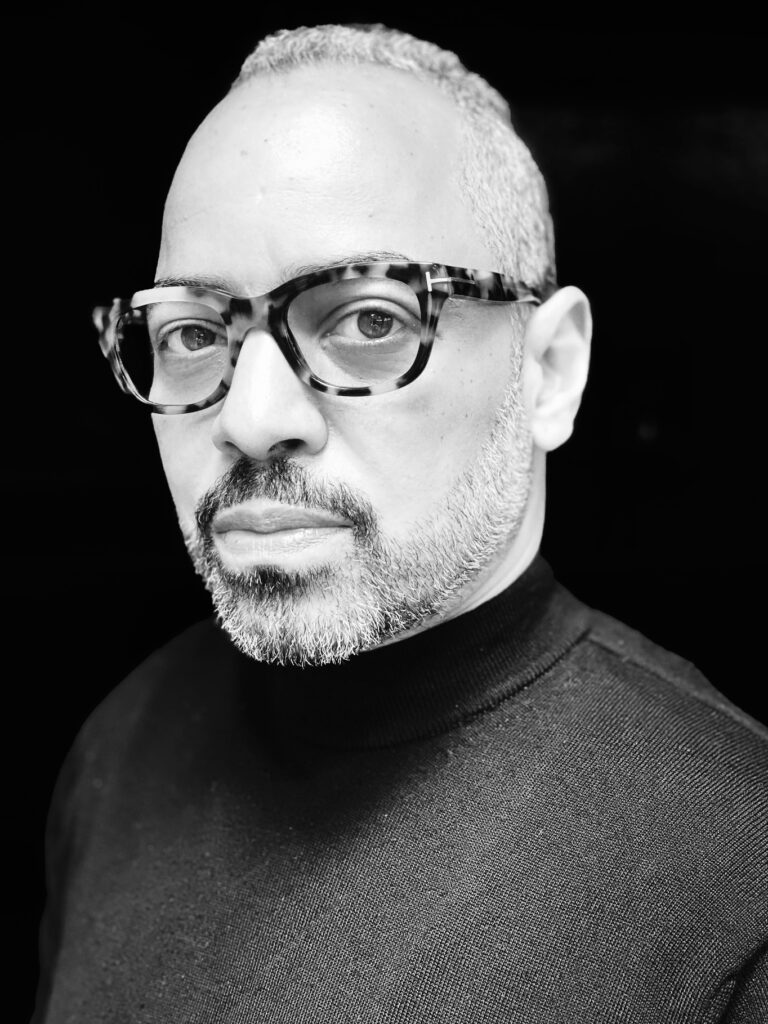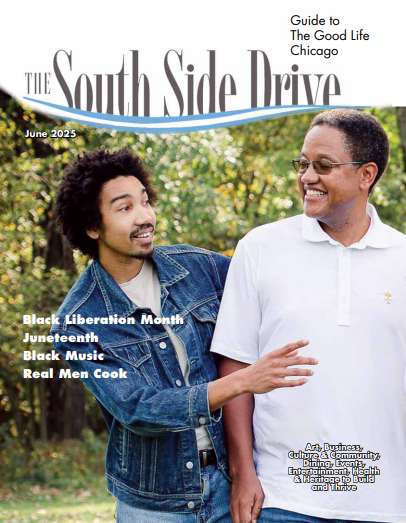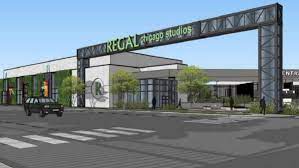A massive 380,000 square foot film studio is coming to Chicago’s southside thanks to Derek Dudley, producer of the popular series, “The Chi” and manager of rap artist, Common; and Jim Reynolds, founder, chairman and chief executive officer of Loop Capital.
We recently spoke with Derek Dudley about the project. Although Dudley calls Atlanta his home, he was actually born and raised in Chicago’s South Shore community, coincidentally, not far from the site of the Regal Mile Film Studio
The state-of-the-art, Regal Mile Film and Television Studio will have several sound stages, a cafeteria and office space to begin with. Eventually, as the project is being built out in different phases, a post-production facility and additional stages will be added. But what Dudley is really excited about, and what should excite all of us in light of the lack of jobs and resources for Chicago’s youth is the real investment Derek Dudley and Jim Reynolds will be making into workforce training.
Dudley speaks extensively and enthusiastically about the reason they are making such a large investment in workforce training. “We have to start training people to work in the film industry and there are so many amazing career opportunities in film and television, not just in front of the camera, that pay extremely well,” he explains.
When he says he wants to start training young people for these opportunities, he is speaking of children as young as high schoolers. “We’ve had advanced conversations with Chicago Vocational High School (CVS),” he says, “and Chicago Public Schools CEO, Pedro Martinez and his team about setting up our workforce training program at CVS.” He points out that nearly half of CVS has not been operational for over ten years and half the school is boarded up. After taking a tour of the school, he saw tremendous opportunity, not only to create a workforce training program in film and television there, but also to layer in technology, fashion, music, and other disciplines, all in the ecosystem of entertainment. “All of these disciplines feed into film and television, “ Dudley points out, “yet, all are great industries to be part of on their own.” He says technology will play an important role, not only as regards to film and television, but especially as you look back to what’s happening with shows like the “Mandalorian” shot on LED screens because that’s the type of technology our kids need to learn on, because that is becoming the future of production. He further explains, “Kids need to start learning how to code and they need to learn about the metaverse and AI (artificial intelligence), and all of these different aspects of technology that are still related to entertainment.” To this end, Dudley says he wants to be sure to bring in the right partners to start to train our young people in those industries.
He also emphasizes training young people on the music side of the business, “not only about learning how to make your own record, but about scoring and sound engineering and all the different aspects that music and sound not only play in film and television, but just exist in this ecosystem of the entertainment industry.” He stated that the entertainment ecosystems will formulate what Michael Fasanoff of World Business Chicago calls “a creative economy.”
Although, he’s on a mission to formulate this creative economy for Regal Mile studios, he tells us that to him it’s bigger than that – it’s bigger than those sound stages, “it’s really about creating an industry in our city that will have a profound ripple effect in a very positive way, not only for the young people on the south side of Chicago, but people across the diaspora.”
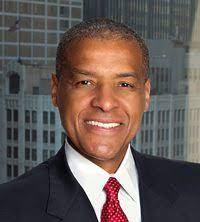
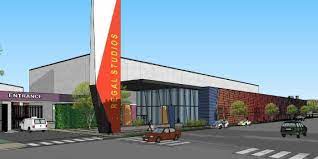
What about the other studio operators that are in Chicago or are coming to Chicago? Dudley says, “I want them all to come. That’s the way we’re going to build our industry, especially on the film and TV side. And I’m also reaching out to a lot of the entertainers I know and have great relationships and friendships with, many who are from Chicago, to come back and become partners in this venture, whether directly in the film stages and the workforce training program, or just to come back and in some way, use their brand and their success to create and be involved in this entertainment ecosystem and this creative economy.”
One thing to think of, as he points out, is that the upcoming Obama Center and the upcoming Regal Mile Studio, which will sit on 78th and South Chicago, are about a mile away from each other. These two development pillars on the south side of Chicago will start to inspire the transformation on the south side. “We’re going to need infrastructure for them to survive and have viability; we’re going to need hotels and restaurants to support them as entertainers and actors come into the city to work on film and television projects.” He is hopeful that entrepreneurs from within Chicago’s south side will be the ones opening the restaurants, hotels, coffee shops, dry cleaners and various kinds of facilities that will be needed as a result of these two projects.
Could this be one answer to Chicago’s crime and violence? Dudley thinks so. He says, “Crime comes from poverty, lack of opportunity, low self-esteem, the feeling that you don’t have anything. So, when you’re now able to have an opportunity to create a living for yourself that’s legal, you can now pay your bills, buy a home, then you have some real ownership, you have pride, and it creates a ripple effect.” He says that’s why we need the Thrive Exchange project, the Obama Center, and the XChange Project, and we (Black people) are the ones behind them.” Dudley says that’s also why it was important for him not to have any celebrity attached to the project at the beginning. He states, “I’ve managed Common for 32 years, I have tremendous relationships with the entertainment industry and could have easily had them attached to this project, but I never wanted that narrative, it was important for the narrative to be Jim Reynolds and me – a very successful Black man in investment banking from the south side of Chicago and a very successful Black man in the entertainment industry from the south side of Chicago. Two totally different fields – both men from the south side of Chicago that came together to invest in our community.”
It’s about turning South Shore around, Dudley says. Not through gentrification, but through us taking ownership and investing in our community and having that money circulating in and around our community over and over again. “And when we do that,” he says proudly, “the ripple effect throughout the city of Chicago is going to be something that has never been seen before. And what that is going to do for the rest of the country, for the rest of the world, is going to be unprecedented. We can no longer sit on the sidelines and let other people come in here, start to develop in our community and create these ideas and opportunities for us. We have to do it. We have to support it.”
The projected date for completion of the Regal Mile Studios is spring of 2024.
